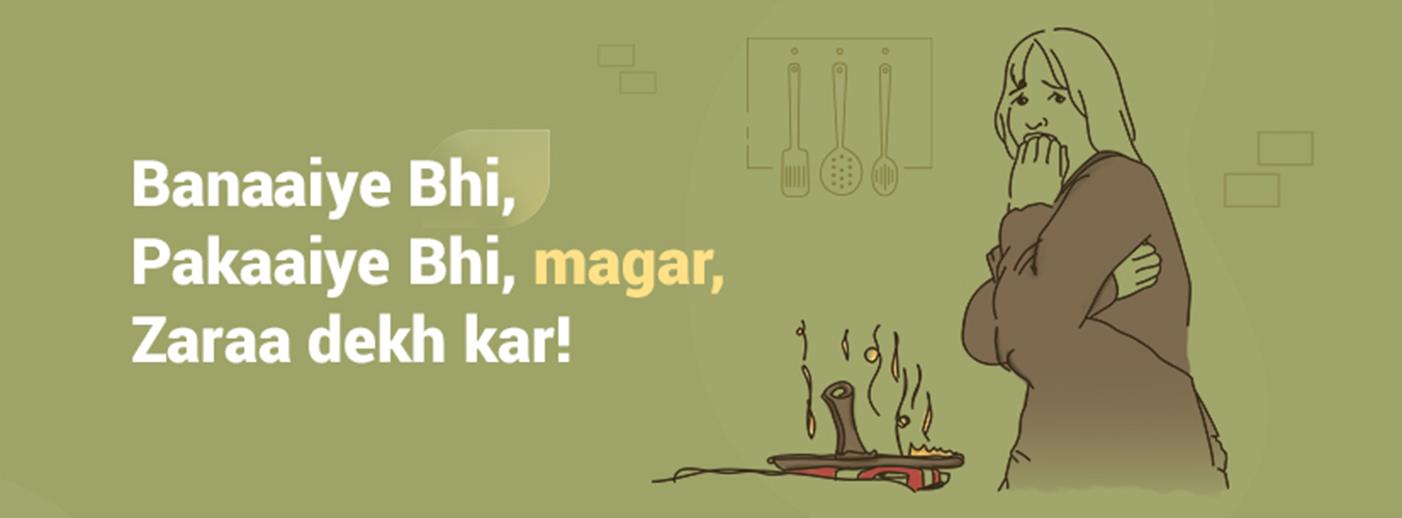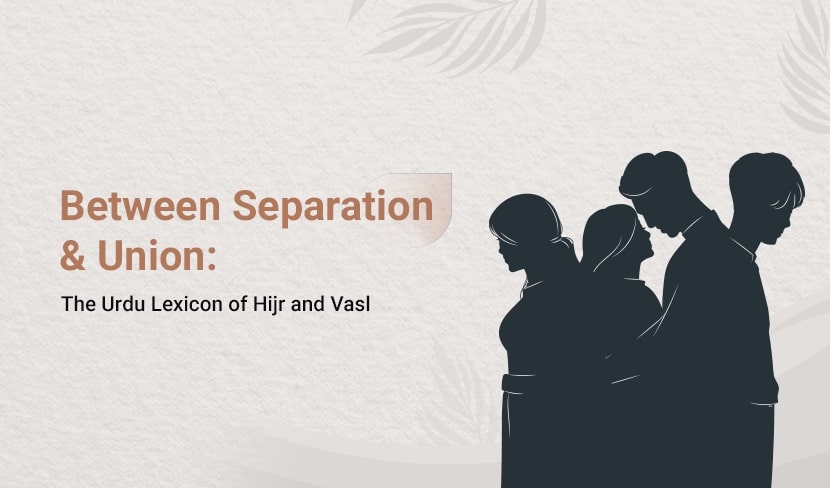Top searched
Saved words
khisyaanii billii khambaa noche
an embarrassed or ashamed person tends to vent his/her feeling by quarrelling
be-niyaaz
without want, free from want, wanting nothing, not in need, able to dispense, independent, carefree
Banaaiye Bhi, Pakaaiye Bhi, magar, zaraa dekh kar!

Shakespeare famously wrote, ‘To be, or not to be.’
Umm, I ask, ‘To do, or not t… ’, wait; let me have a go at it again, ‘To do, or to cook?’
If you’re stumped at my slightly-unbalanced question, don’t be. We’re going to shed some light on two of our most common verbs that we often use interchangeably. These are ‘Banaanaa’, to make, prepare; to contrive (slang), and ‘Pakaanaa’, to cook; to bore (slang).
These two verbs are being increasingly used in one another’s place. Let’s go beyond Hindi and Urdu for a moment, and see how English works- ‘I am making Spaghetti for dinner’; ‘I am cooking Prawns tonight’. Not much there, right?
Wrong. One of the great things about language involves its ability to differentiate between different things and actions. This means, it all comes down to your appetite; Spaghetti or Prawns, those taste buds on your zabaan determine whether it’s going to be ‘Banaanaa’ or ‘Pakaanaa’. Choose wisely, or else, you’ll be made to chew your words back!
Of course, in some cases we can go for either of them, like ‘Khaanaa Pakaanaa’/’Khaanaa Banaanaa’, but in Urdu, even if you’re not a purist, ‘Khaanaa Pakaanaa’ is the norm, however here too, the eatables call the shots.
Tell me which of the two verbs goes well with coffee, Chai, chutney, Achaar, or even Halwaa- ‘Banaanaa’, without a whiff of a doubt. No one is going to dare say, ‘Main Chai Pakaane jaa rahaa hun’. We’ll all run away! Why? Because no one likes ‘Paki Hui Chai’. You get the point, don’t you?
Really, the different verbs in our languages help us tell apart these subtle differences, once we start bartering them, grey areas appear and eloquence disappears. If you want a taste of how this thing happens, here’s an anecdote involving Bedaar Bakht. He narrates:
‘Maine Toronto se dehli apni ek buzurg (elder) ko likha kih mujhe Aalu-Gosht banaane kii tarkiib (recipe) likh bhejiye.’
To which she wrote back, ‘Beta Gosht to Qasaaii banaata hai; tum shaayad pakaane kii tarkiib jaanana chahte ho.’
This little piece of tongue-in-cheek humor is a good reminder that there is always more to know. That’s why we hinted in the title, Banaaiye Bhi, Pakaaiye Bhi, magar, zaraa dekh kar!
Baniye Nahin, Pakaaiye Nahin.
Delete 44 saved words?
Do you really want to delete these records? This process cannot be undone





